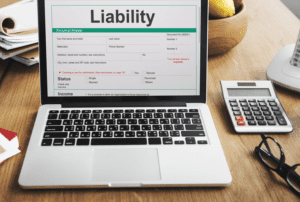
This might seem like a late payment but many businesses use this payroll method and it is actually very common. Employees are paid their agreed-upon wage and it gives businesses time to run payroll. When it comes to paying in arrears and payroll, using cloud payroll software lets you set a payment schedule that works for your business. Not only will you be able to set payroll to run automatically, but you’ll also be able to calculate and file payroll tax, manage HR and employee benefits and more.
h Pay Commission, DA Arrears, Old Pension Scheme: Govt Employee Union Has 7 Demands Ahead of Budget 2024

Yes, most companies pay in arrears, especially those with hourly or tipped employees. Since employees’ hours can change workweek to workweek, it will take payroll a few days to be finalized. The downside for employees is the longer interval between paychecks, which can be challenging for those who depend on regular income. For employers, biweekly pay can involve more paperwork and a higher potential for errors compared to monthly pay schedules. There’s also the slightly increased cost due to more frequent payroll processing.
What Arrears Means for Child Support
For example, imagine that you pay employees on the fifth of March for work that was completed during the full month of February. Because the employees receive their paychecks after the work has already been completed, it’s paid monthly in arrears. However, if an individual is responsible for paid in arrears making payments in arrears (loan repayments or child support) and fails to do so, it may lead to legal consequences. Job termination usually only occurs if nonpayment directly affects job performance or integrity. Most companies pay in arrears because it makes processing payroll much simpler.

Disadvantage #1: Paying in arrears leads to employees waiting for their payment
- In the examples above, arrears are not the result of overdue payments.
- Common reasons for late payments include invoice errors or a dispute regarding the product or service.
- Once you’ve enabled the ability to invoice in arrears you’ll need to manage your billing schedules that bill in arrears.
- When a payment in arrears fails to go through by the payment due date, it becomes an overdue payment.
- Since making the most of her time has become her passion, she is constantly searching for unique productivity and time management hacks.
- The concept of arrears also applies when a publicly-traded company issues dividends to its investors.
We take a look at what it means to pay or bill in arrears, the benefits and drawbacks, as well as best practices. Arrears refers to a debt or payment that is still outstanding after the payment due date has passed. Kara Credle is a senior editor from North Carolina with experience in business technology and services topics. She is dedicated to delivering clear and captivating content to readers who want to make well-informed choices. Cassie is a deputy editor collaborating with teams around the world while living in the beautiful hills of Kentucky. Prior to joining the team at Forbes Advisor, Cassie was a content operations manager and copywriting manager.
Using Arrears Billing vs. Advance Payments: Benefits and Disadvantages
Arrears refers to a payment that is issued after goods or services are completed or delivered. In contrast, advance payments are given upfront before goods or services are provided. Read through to learn more about arrears billing, or use the links below to navigate throughout the post. Not in certain contexts, such as in bond trading, when arrears is a reference to payments that are made at the end of a specified period.
Paid in Arrears Defined
Finally, subtract any amount already paid for this period, and add extra wages for tips, overtime, or employee benefits. Paying in arrears takes on a slightly different meaning in accounting. When you pay for goods and services after they’ve been received, they’re paid in arrears. For example, imagine that you purchase services from a vendor with net 30 payment terms. This means that you have 30 days to submit your payment after receiving the service.
Using arrears billing vs advance payments: benefits and disadvantages
The first meaning of paid in arrears is commonly referenced in relation to employee payroll, meaning employees are paid after they have completed work, rather than in advance. For example, a salaried employee may receive a paycheck on May 15th for work completed from May 1st to May 14th. Because they are being compensated after the work has been completed, the payment is made in arrears. By paying employees in arrears, employers don’t have to worry about miscalculating or forgetting to consider paid time off (PTO), overtime, and sick leave. Depending on your payroll schedule, whether it’s weekly, biweekly, monthly, and so forth, wages are scheduled after the payroll period.
- Being paid one week in arrears means that payment is due exactly one week after goods, services, or other work has been provided.
- When payrolls are in arrears, the previous week’s (or some other period’s) payments are processed and paid out to employees as opposed to wages earned during the current period.
- It’s also important to comply with local, state/territory and federal labour laws when processing payroll.
- Not only will you be able to set payroll to run automatically, but you’ll also be able to calculate and file payroll taxes, manage HR and employee benefits, and more.
- Paying in arrears allows a business time to calculate total wages for the current pay period.
- An example of a payment in advance is rent, which is paid at the start of the month.
When you’ve just finished a tough week at work, what can certainly lift your spirits is being able to access that hard-earned money right away. Paying in arrears prevents employees from doing so, which is why some employees may find it a less desirable compensation option. This term refers to the situation where the employer can give their employee a percentage of their salary before their usual payday.
Best Practices for Billing in Arrears
“Paid in arrears” means that payment for a service is provided after the service has been rendered. In the financial industry, “in arrears” means that a payment is behind. Billing in arrears means you bill customers after providing them with goods or services. Paying in arrears means you make a payment after receiving a good or service. For example, if you have recurring payments to your landlord for rent, and £3,000 is taken out monthly for your commercial property space.
It offers them a consistent and predictable income stream, which aids in better financial management and reduces the likelihood of experiencing financial difficulties throughout the month. For employers, the main advantage lies in the ease of calculating payroll, as the consistent weekly schedule simplifies this process. Arrears literally means, “an unpaid and overdue debt,” meaning past its due date.
